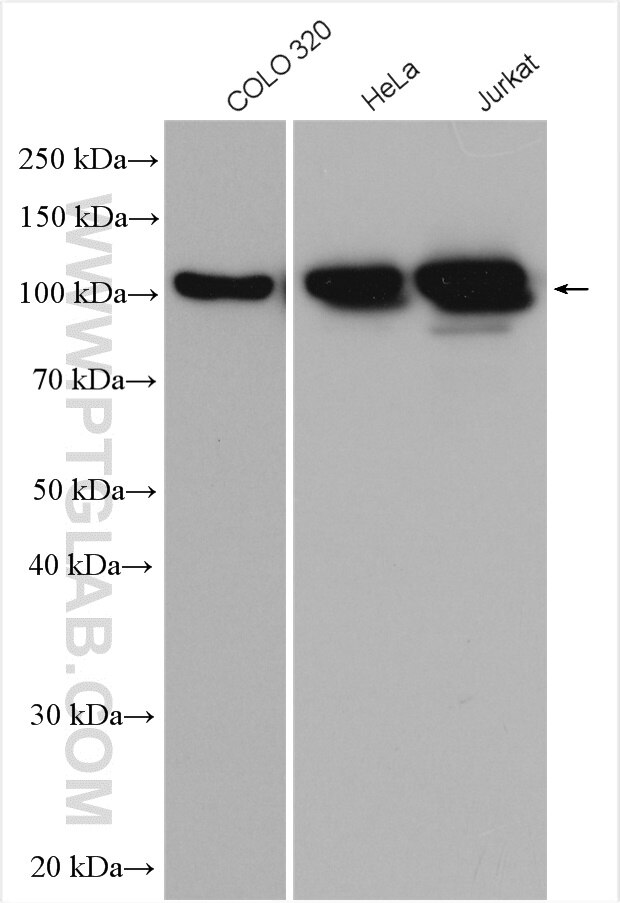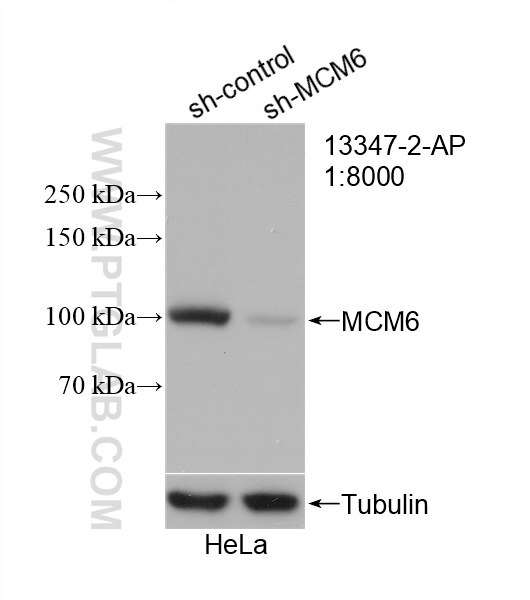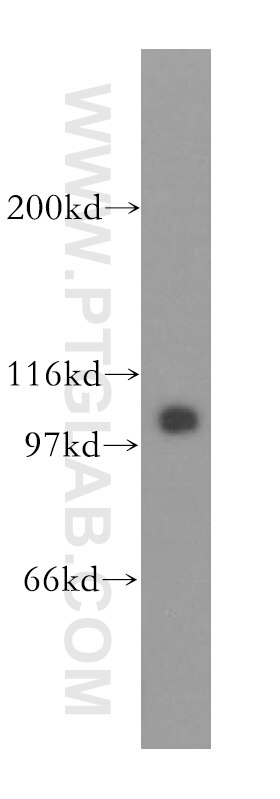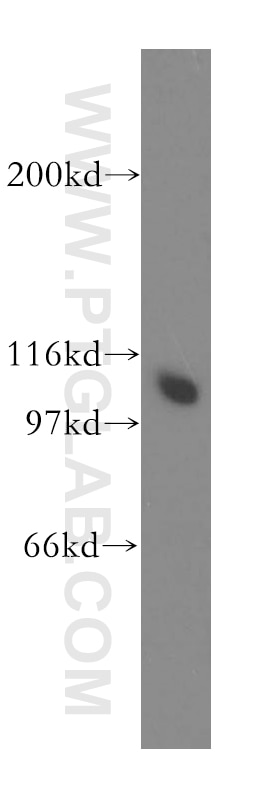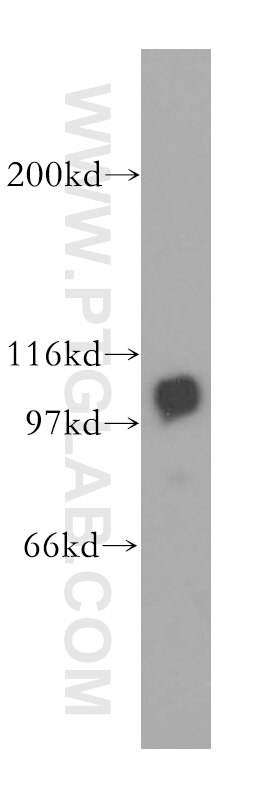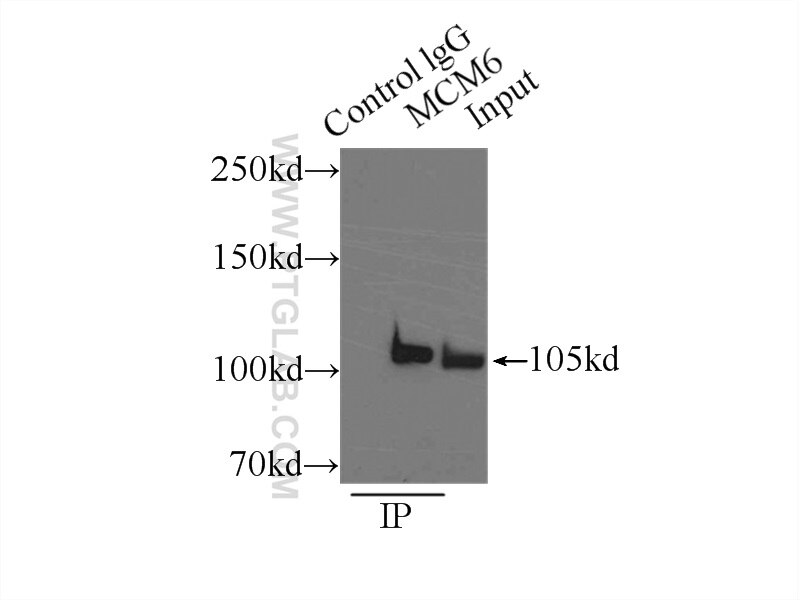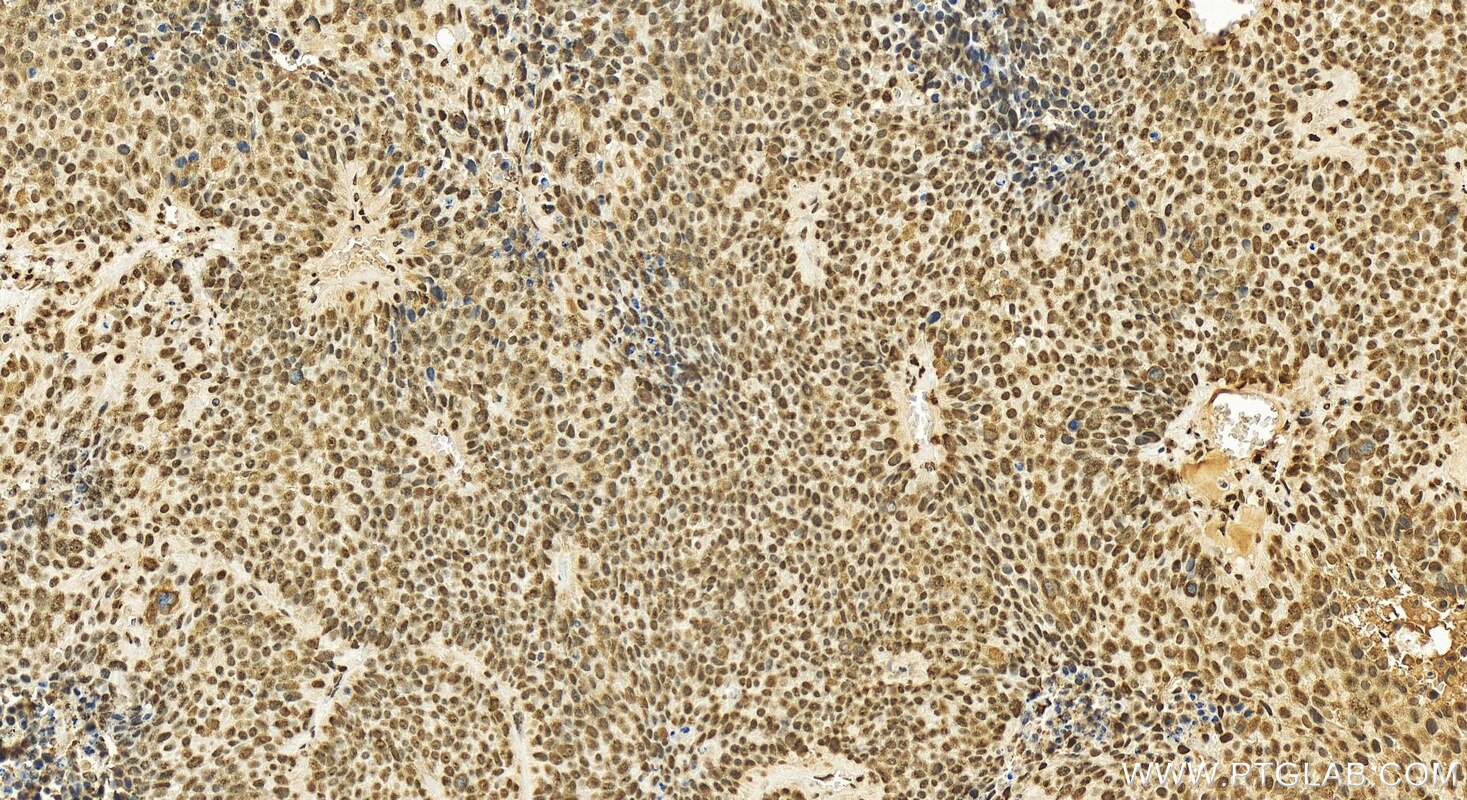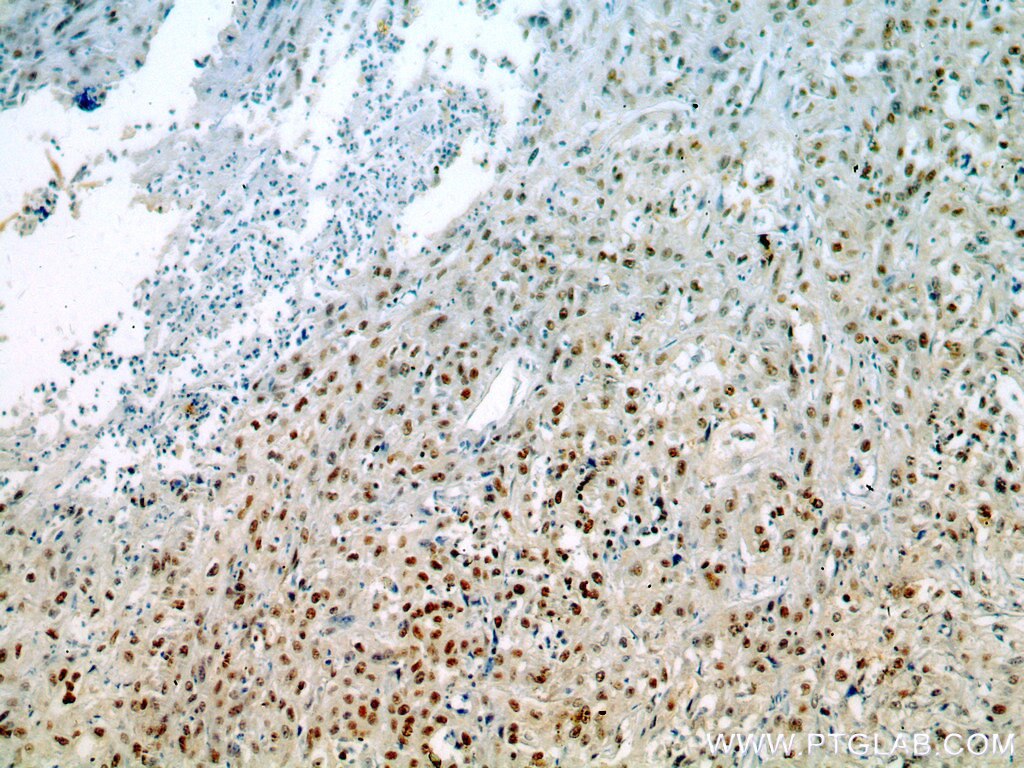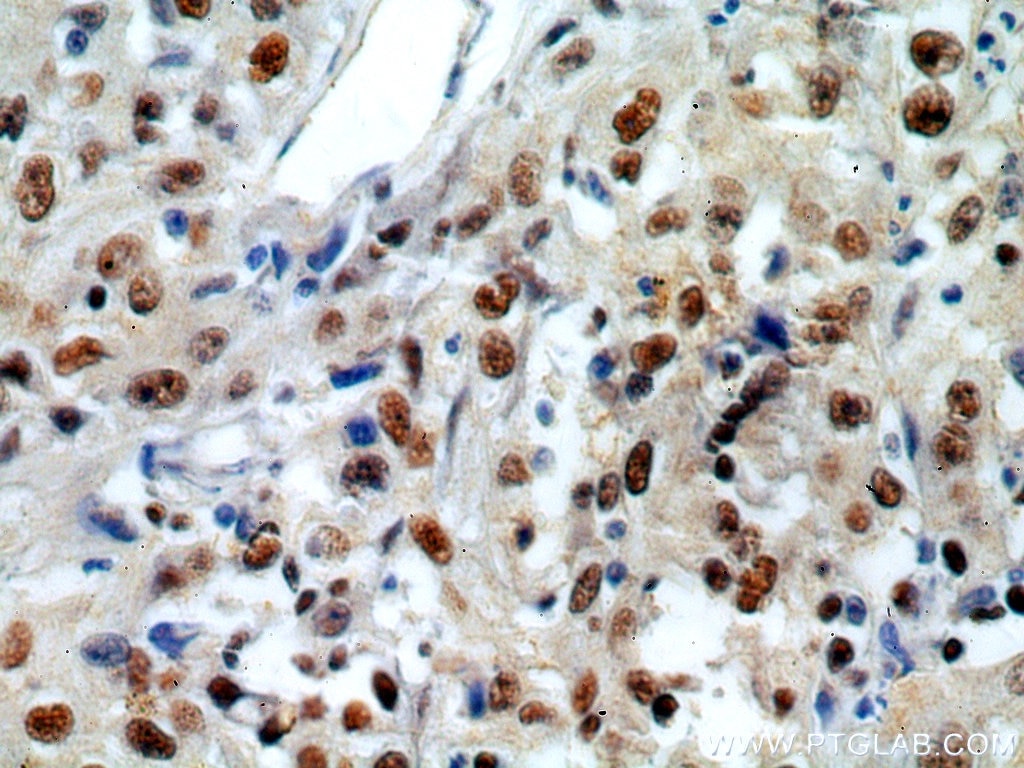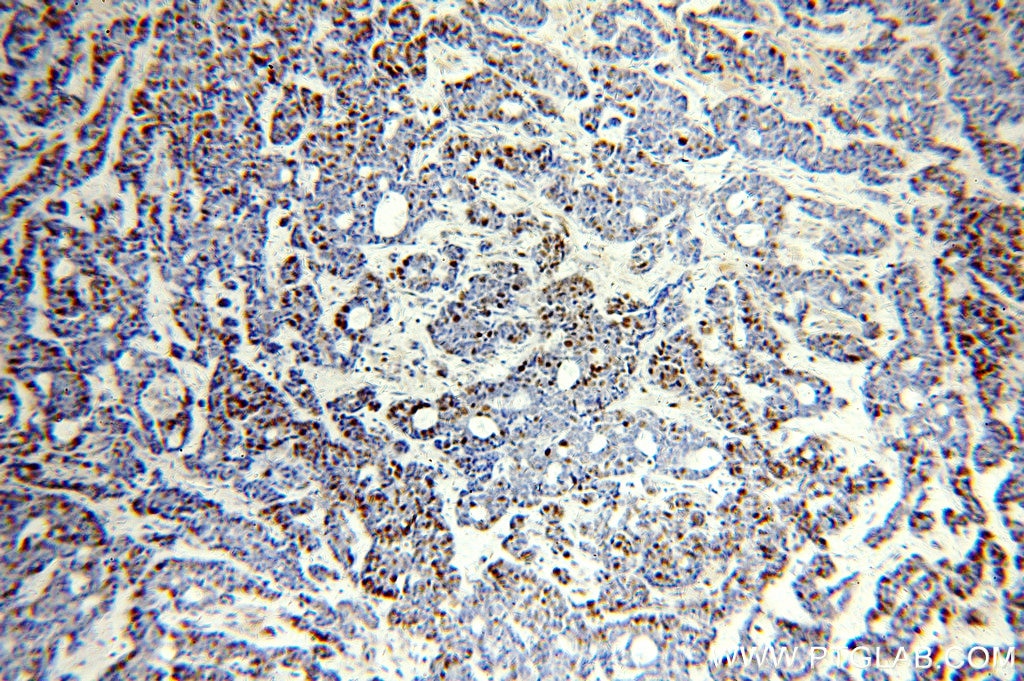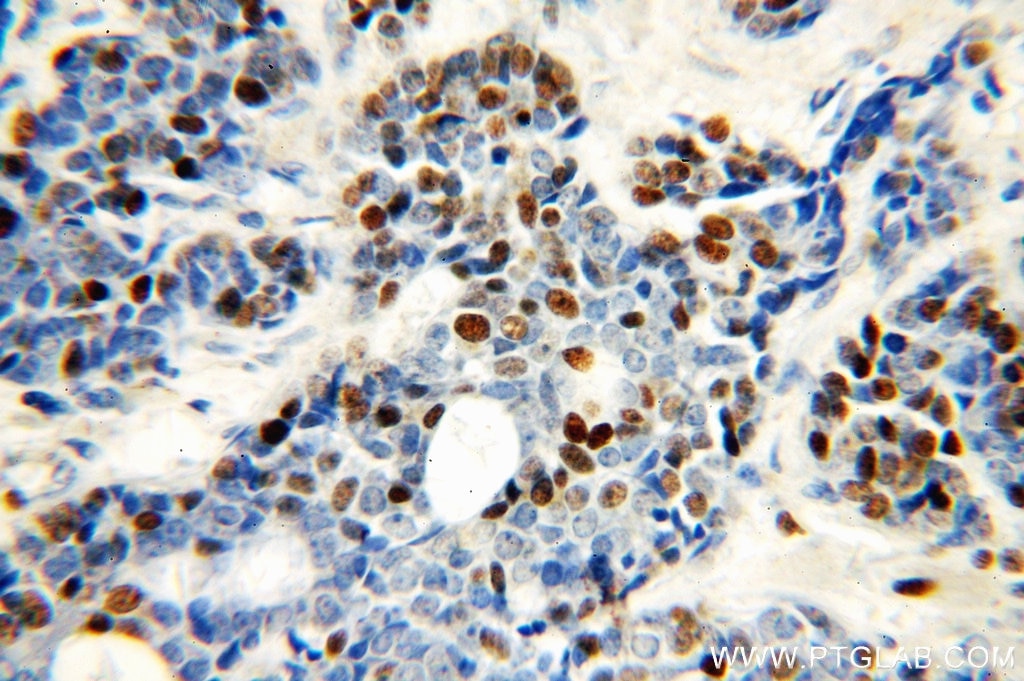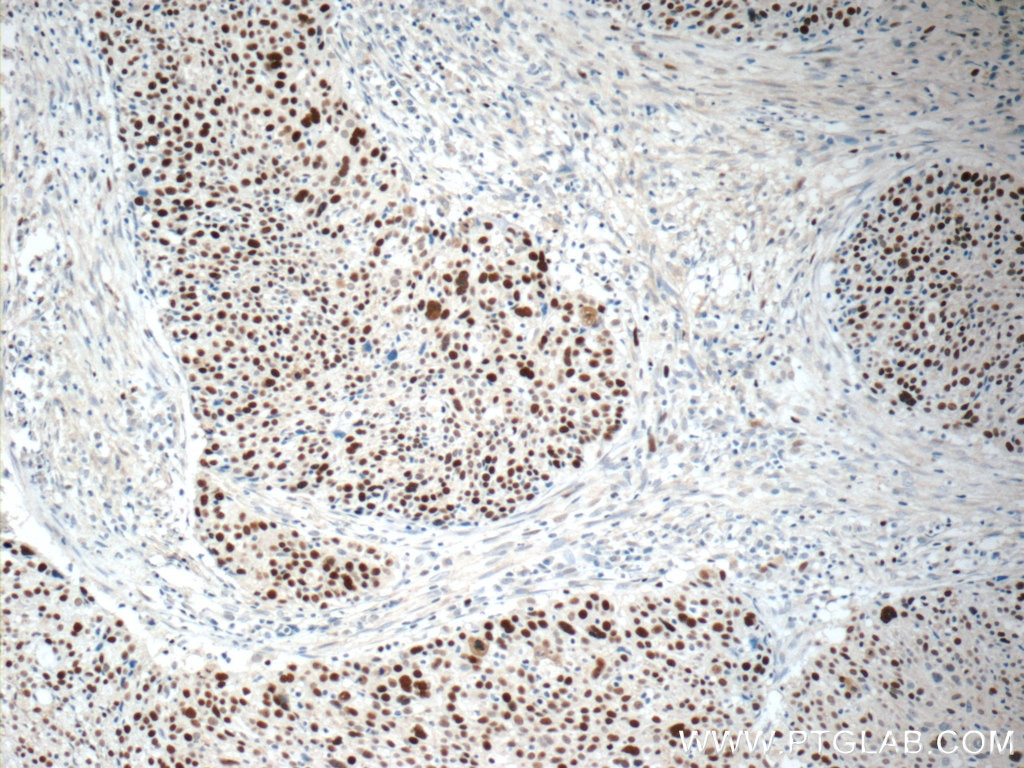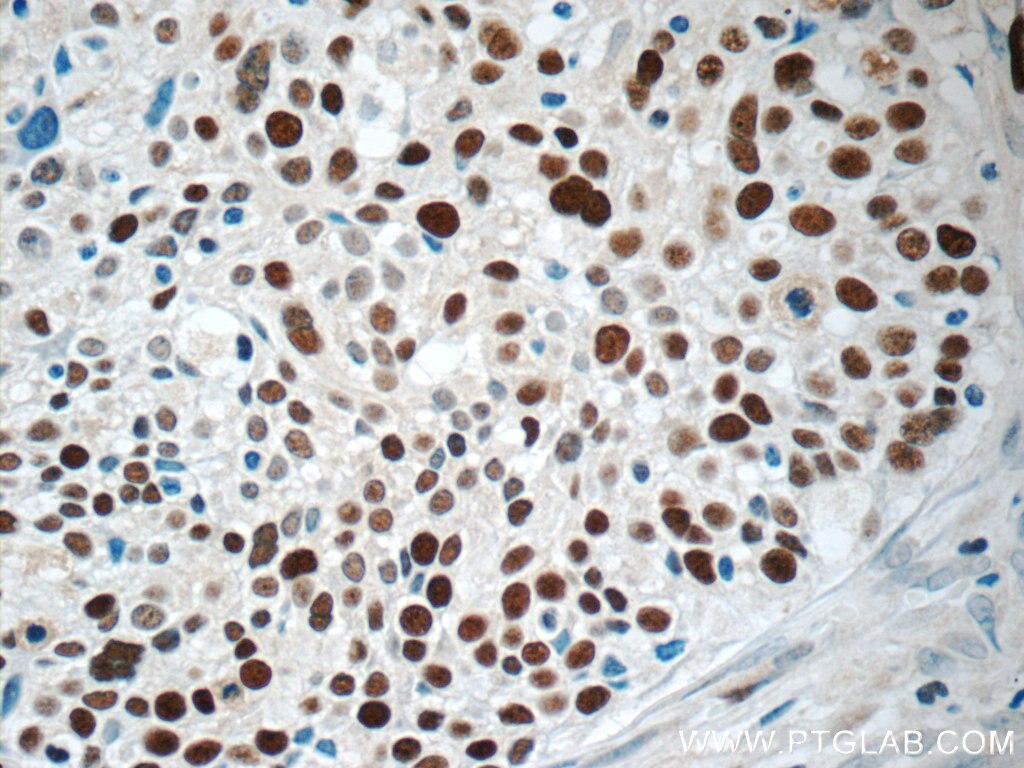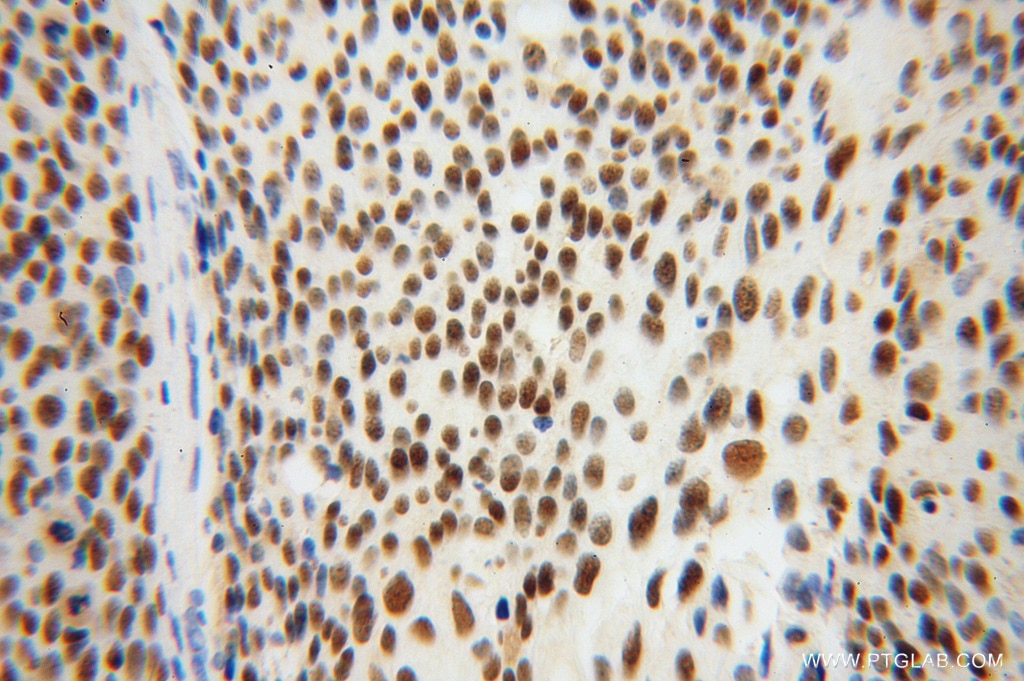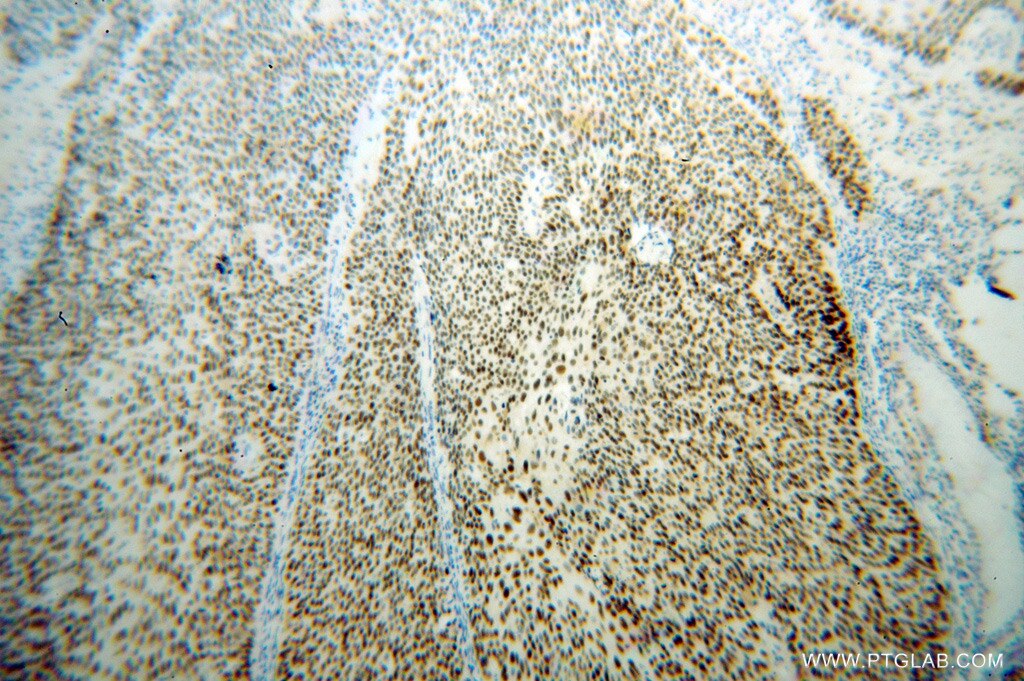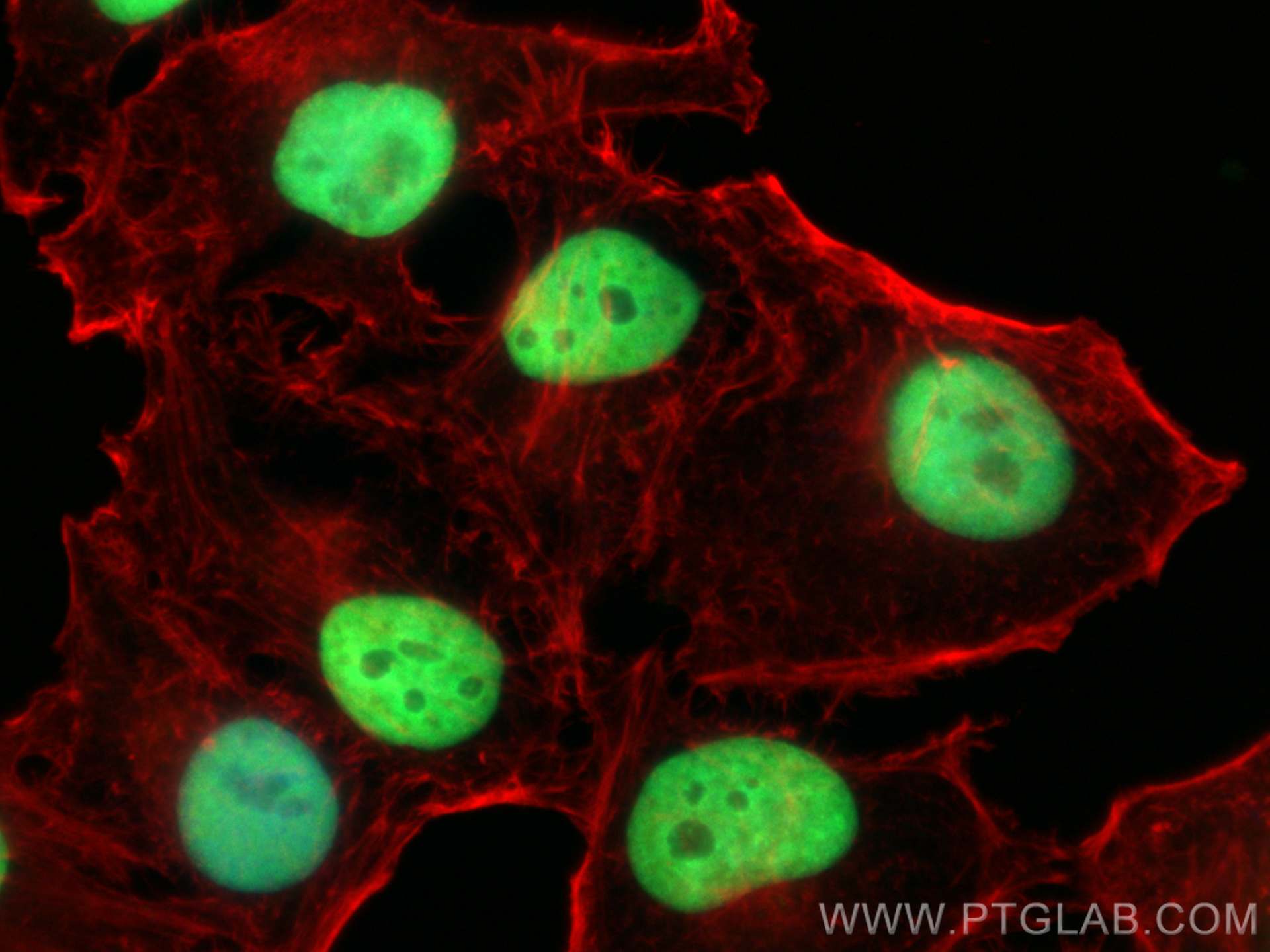- Phare
- Validé par KD/KO
Anticorps Polyclonal de lapin anti-MCM6
MCM6 Polyclonal Antibody for WB, IHC, IF/ICC, IP, ELISA
Hôte / Isotype
Lapin / IgG
Réactivité testée
Humain, rat, souris
Applications
WB, IHC, IF/ICC, IP, ELISA
Conjugaison
Non conjugué
N° de cat : 13347-2-AP
Synonymes
Galerie de données de validation
Applications testées
| Résultats positifs en WB | cellules COLO 320, cellules HeLa, tissu de thymus de souris, tissu ovarien de souris, tissu splénique de souris |
| Résultats positifs en IP | cellules HeLa |
| Résultats positifs en IHC | human lung squamous cell carcinoma tissue, tissu de cancer du col de l'utérus humain, tissu de cancer du poumon humain il est suggéré de démasquer l'antigène avec un tampon de TE buffer pH 9.0; (*) À défaut, 'le démasquage de l'antigène peut être 'effectué avec un tampon citrate pH 6,0. |
| Résultats positifs en IF/ICC | cellules HeLa, |
Dilution recommandée
| Application | Dilution |
|---|---|
| Western Blot (WB) | WB : 1:2000-1:16000 |
| Immunoprécipitation (IP) | IP : 0.5-4.0 ug for 1.0-3.0 mg of total protein lysate |
| Immunohistochimie (IHC) | IHC : 1:200-1:800 |
| Immunofluorescence (IF)/ICC | IF/ICC : 1:50-1:500 |
| It is recommended that this reagent should be titrated in each testing system to obtain optimal results. | |
| Sample-dependent, check data in validation data gallery | |
Applications publiées
| KD/KO | See 4 publications below |
| WB | See 21 publications below |
| IHC | See 10 publications below |
| IF | See 2 publications below |
Informations sur le produit
13347-2-AP cible MCM6 dans les applications de WB, IHC, IF/ICC, IP, ELISA et montre une réactivité avec des échantillons Humain, rat, souris
| Réactivité | Humain, rat, souris |
| Réactivité citée | Humain, souris |
| Hôte / Isotype | Lapin / IgG |
| Clonalité | Polyclonal |
| Type | Anticorps |
| Immunogène | MCM6 Protéine recombinante Ag4180 |
| Nom complet | minichromosome maintenance complex component 6 |
| Masse moléculaire calculée | 821 aa, 93 kDa |
| Poids moléculaire observé | 105 kDa |
| Numéro d’acquisition GenBank | BC032374 |
| Symbole du gène | MCM6 |
| Identification du gène (NCBI) | 4175 |
| Conjugaison | Non conjugué |
| Forme | Liquide |
| Méthode de purification | Purification par affinité contre l'antigène |
| Tampon de stockage | PBS with 0.02% sodium azide and 50% glycerol |
| Conditions de stockage | Stocker à -20°C. Stable pendant un an après l'expédition. L'aliquotage n'est pas nécessaire pour le stockage à -20oC Les 20ul contiennent 0,1% de BSA. |
Informations générales
The MCM genes were firstly identified in yeast defective in minichromosome maintenance and have since been shown to have roles in the progression of the cell cycle, and most of them are cell division control genes[PMID: 18096807]. MCM2-7 complex are suggested to be 'DNA licensing factors' which bind to the DNA after mitosis and enable DNA replication before being removed during S phase. Mini-chromosome maintenance 6 (MCM6) is one component of the MCM2-7 complex which is the putative replicative helicase essential for 'once per cell cycle' DNA replication initiation and elongation in eukaryotic cells[PMID: 9305914]. MCM6 single subunit forms homohexamer and contains an ATP-dependent and replication fork stimulated 3' to 5' DNA unwinding activity along with intrinsic DNA-dependent ATPase and ATP-binding activities [PMID:21336027]. The calculated molecular weight of MCM6 is 92 kDa, but the modified MCM6 is about 105 kDa.
Protocole
| Product Specific Protocols | |
|---|---|
| WB protocol for MCM6 antibody 13347-2-AP | Download protocol |
| IHC protocol for MCM6 antibody 13347-2-AP | Download protocol |
| IF protocol for MCM6 antibody 13347-2-AP | Download protocol |
| IP protocol for MCM6 antibody 13347-2-AP | Download protocol |
| Standard Protocols | |
|---|---|
| Click here to view our Standard Protocols |
Publications
| Species | Application | Title |
|---|---|---|
J Hematol Oncol Proteogenomic insights into the biology and treatment of pancreatic ductal adenocarcinoma | ||
Biomaterials Biocompatible PEGylated Gold nanorods function As cytokinesis inhibitors to suppress angiogenesis. | ||
Elife MCMBP promotes the assembly of the MCM2-7 hetero-hexamer to ensure robust DNA replication in human cells. | ||
Front Oncol METTL3 Promotes the Progression of Gastric Cancer via Targeting the MYC Pathway. | ||
Oncotarget Lamin B2 binding to minichromosome maintenance complex component 7 promotes non-small cell lung carcinogenesis. | ||
Cell Prolif RNF8 promotes efficient DSB repair by inhibiting the pro-apoptotic activity of p53 through regulating the function of Tip60. |
